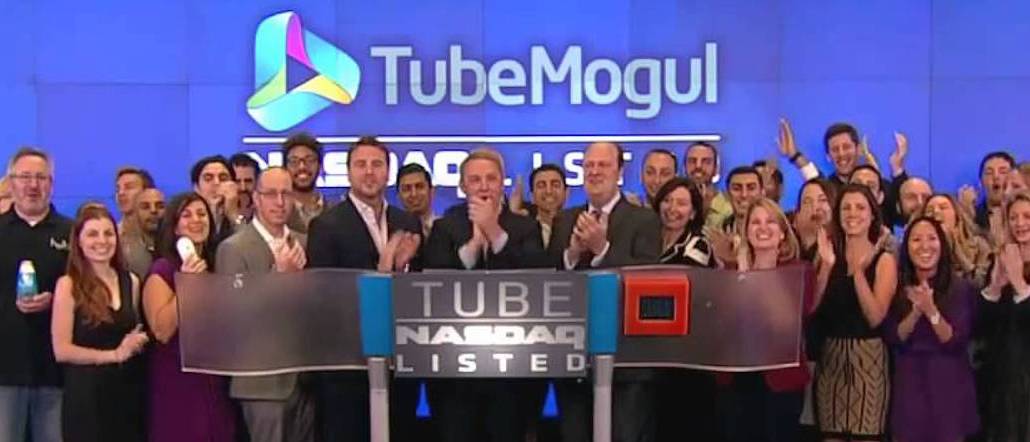Secure your place at the Digiday Media Buying Summit in Nashville, March 2-4
Adobe’s acquisition of TubeMogul: An ad tech consolidation tipping point

On Thursday, Adobe revealed its plan to acquire video demand-side platform TubeMogul for $540 million. Many point to the deal as the Platonic ideal of an ad tech transaction: TubeMogul has solid video technology that fits very well with Adobe’s creative and marketing cloud business, both companies have adopted software as a service business model (known as “SaaS”), and TubeMogul is a profitable business. In the first nine months of this year, the company reported $56.1 million in revenue, up 21 percent from the same period a year prior.
“I cannot believe that it’s taken so long for Adobe to do this,” said Todd Sawicki, CEO for ad tech firm Zemanta. “I’m personally very excited about this acquisition: strategic deal, good product and reasonable price. Every deal makes the next one easier. I’d like to see more acquisitions like this in the industry.”
The Adobe-TubeMogul deal aside, 331 mergers and acquisitions took place in ad tech and marketing tech in the first nine months of this year, which is on track to top the record high of 428 mergers and acquisitions in 2014, according to consulting firm Results International.
For instance, Salesforce agreed to buy DMP Krux last month for $700 million. In September, Orient Hontai Capital in China took a majority stake in San Francisco-based ad tech startup AppLovin for $1.4 billion. In July, Verizon revealed its plan to acquire Yahoo — that owns programmatic video firm BrightRoll and ad-buying platform Gemini — for $4.8 billion.
“It’s always been all about data. Now we’re getting closer to the dream,” said Andrew Casale, president and CEO at Index Exchange. “Data was spotty in the early days. It’s getting a lot more precise now. That’s why we saw the Adobe acquisition: They can now compete from end to end.”
Then there’s the fact that venture capital for ad tech has been drying up in the past 18 to 24 months, meaning that few new companies are being launched now, while existing ad tech startups are struggling to get their next round of investment. So they needed to pivot their business to figure out how to generate cash immediately, according to a sales head at a major media company.
“The consolidation hasn’t happened as quickly as it’s supposed to because nobody wants to buy dying ad networks,” he said. “Big players are buying the cream of the crop. TubeMogul and Adapt.tv have been taken out, so now Videology is probably the biggest in the programmatic video space. The rest are just ad networks — they will go out of business.”
As it is becoming harder for ad tech firms to raise money from VCs, tech conglomerates like Oracle, Adobe, Salesforce and even telecommunication company Verizon, for example, can swoop in to acquire them, according to Brian Wieser, senior research analyst for Pivotal.
Zemanta’s Sawicki also thinks that ad tech consolidation is also ramping up because companies that have been investing in technology are moving toward a software subscription-based model rather than a media arbitrage model.
“The last wave of ad tech acquisitions was a disaster. Google spent millions of dollars on Admeld and Wildfire but ended up shutting down the two platforms. And AOL shut down Gravity,” he explained. “Those deals didn’t pan out because they were pre-SaaS.”
Ad tech consolidation will continue. At least, the Adobe-TubeMogul deal will put pressure on other marketing cloud companies like Salesforce, Oracle, IBM, SAP to either get into ad execution and match Adobe, or better articulate to customers why they are not, said Ben Tregoe, svp of business development for ad tech firm Nanigans.
“My guess is that they will ultimately make the leap and we will see more DSPs and other buying platforms get bought,” said Trego.
And marketers need this consolidation to continue, because it’s not feasible for them to work with lots of different technology providers to solve a relatively short list of key needs and demands, added Matt Spiegel, managing director for MediaLink.
“We don’t believe that any one technology provider will solve everything, but we do often counsel marketers to find their primary or two primary technology providers on which to build from,” he noted.
More in Media

Media Briefing: Turning scraped content into paid assets — Amazon and Microsoft build AI marketplaces
Amazon plans an AI content marketplace to join Microsoft’s efforts and pay publishers — but it relies on AI com stop scraping for free.

Overheard at the Digiday AI Marketing Strategies event
Marketers, brands, and tech companies chat in-person at Digiday’s AI Marketing Strategies event about internal friction, how best to use AI tools, and more.

Digiday+ Research: Dow Jones, Business Insider and other publishers on AI-driven search
This report explores how publishers are navigating search as AI reshapes how people access information and how publishers monetize content.







